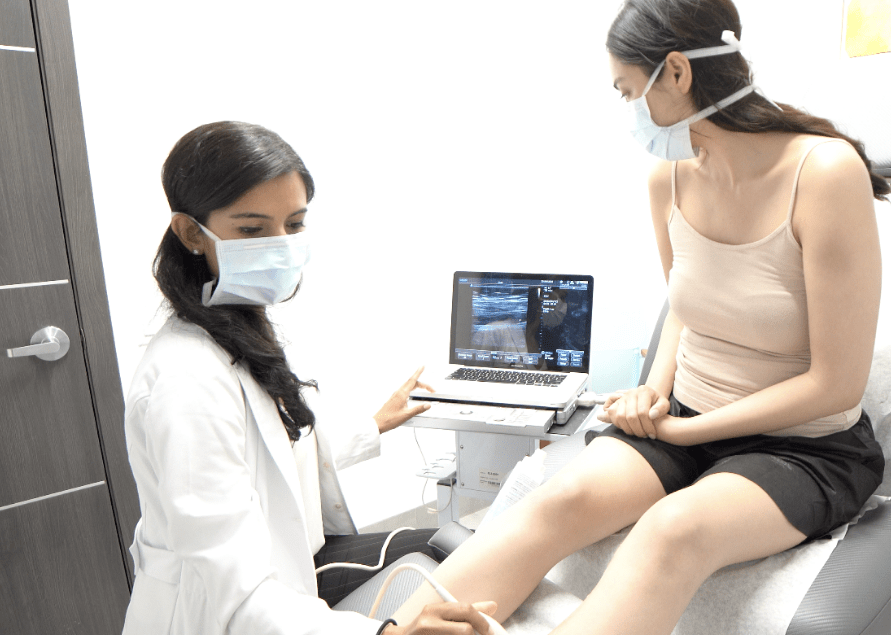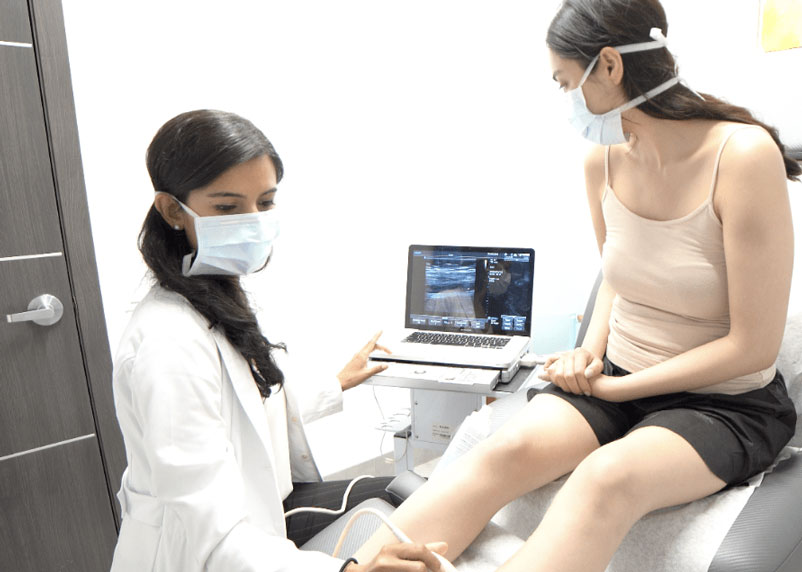Introducing the VIP Veins Center, SD
The Spider Vein and Varicose Vein Treatment Clinic is widely considered the best veins center in SD, California. Our vein clinic is located at 5330 Carroll Canyon Rd Suite 140, San Diego, a short drive from the Torrey Pines beach state park in the beautiful La Jolla neighborhood. Our vein center has unanimous 5-star ratings and reviews from all patients because we follow a comprehensive vein care plan that ensures success.

We also believe it’s our responsibility to spread awareness about vein disease and varicose vein treatments. Most people assume that spider veins and varicose veins are harmless, whereas they’re actually symptomatic of chronic venous insufficiency, a dangerous underlying circulatory disorder. People also assume that spider veins and varicose veins can go away naturally or be reduced with topical creams — none of that is true.
Because of the persistent myths about spider veins and varicose veins, most of our patients don’t seek treatment until they experience the advanced complications of vein disease. We want to rectify that and offer medically sound and accurate information about varicose veins and spider veins. Hopefully, understanding these extremely common and underdiagnosed problems will empower you to seek minimally invasive treatments early.
You may schedule an appointment online or call us at +1 858-859-9736.

Can varicose veins go away?
No. Varicose veins cannot go away on their own. Varicose veins are dense masses of tangled, twisted, and knotted blood vessels that protrude out of the skin’s surface because of excessive blood accumulation. They’re caused by an underlying chronic condition known as venous insufficiency. If left untreated, blood will continue accumulating in leg veins, leading to larger and more numerous varicose veins. Over time, excessive vascular dilation may weaken the vein walls so much that your varicose veins burst, leading to profuse bleeding and a trip to the emergency room.
Can you get rid of varicose veins without surgery?
Yes, you can definitely get rid of varicose veins without surgery. In fact, we highly recommend pursuing minimally invasive varicose vein treatments instead of vascular surgeries. In the past, varicose veins could only be treated using complex surgical procedures that involved excessive downtime and a high risk of complications. However, modern minimally invasive spider vein and varicose vein treatments are safe, effective, and convenient — they conclude within an hour with no downtime. As such, you should only look for vein doctors providing minimally invasive varicose vein treatments.
What happens if varicose veins are left untreated?
If varicose veins are left untreated, blood will continue accumulating in your leg veins, leading to excessive vascular dilation. The varicose veins may eventually burst, leading to profuse bleeding, for which you’ll have to be taken to an emergency room. The lack of effective blood circulation will also lead to skin discoloration and the formation of non-healing wounds on your skin, known as leg ulcers. Furthermore, blood clots in the veins (deep vein thrombosis) may eventually travel to the lungs, leading to a potentially fatal pulmonary embolism.
Is walking good for varicose veins?
Yes, walking is certainly good for varicose veins. When you walk, your calf muscles contract and push the accumulated blood from your leg veins to your heart, thereby alleviating the worst symptoms of vein disease. Walking also improves blood circulation, which can provide some relief. However, walking can only provide temporary and mild relief from the symptoms — it won’t treat varicose veins or chronic venous insufficiency.
What exercise is best for varicose veins?
Running, swimming, and cycling are some of the best exercises for varicose veins because they improve blood circulation. These exercises engage your calf muscles, thereby making them push accumulated blood towards the heart. This alleviates the pressure on your varicose veins. However, exercise can only provide temporary relief from some of the symptoms — they can’t treat varicose veins or the underlying vein disease.
Are compression socks good for varicose veins?
Yes, compression socks are good for varicose veins. Compression socks are skin-tight garments that apply pressure on the varicose veins, pushing the accumulated blood towards the heart. As such, compression stockings can relieve the pressure and minimize discomfort, but they can’t treat varicose veins or the underlying chronic venous insufficiency.
How can I permanently cure varicose veins?
The only way to treat varicose veins permanently is undergoing minimally invasive treatments for chronic venous insufficiency. Radiofrequency ablation, endovenous laser ablation, and venaseal are some of the most effective vein treatments. During these procedures, the vein specialist will channel thermal energy, laser energy, or medical adhesives into the diseased vein to destroy their walls. The accumulated blood will reroute into healthier leg veins, restoring effective blood circulation to the heart. After treating vein disease, the vein doctor can remove superficial varicose veins through small incisions on the skin’s surface — this procedure is called ambulatory phlebectomy.
What happens during ambulatory phlebectomy?
During ambulatory phlebectomy, the vein doctor will administer local anesthesia to ensure optimal comfort. The vein specialist will make small incisions on the skin’s surface to manually extract the superficial varicose veins. This procedure provides instant results, and the incision marks will gradually fade away.
Is varicose vein treatment covered by insurance?
Yes, varicose vein treatments are usually covered by most insurance plans because they’re deemed medically necessary, especially if you have chronic venous insufficiency. We provide hassle-free insurance verification for all patients and actively work towards minimizing your out-of-pocket vein treatment costs.









